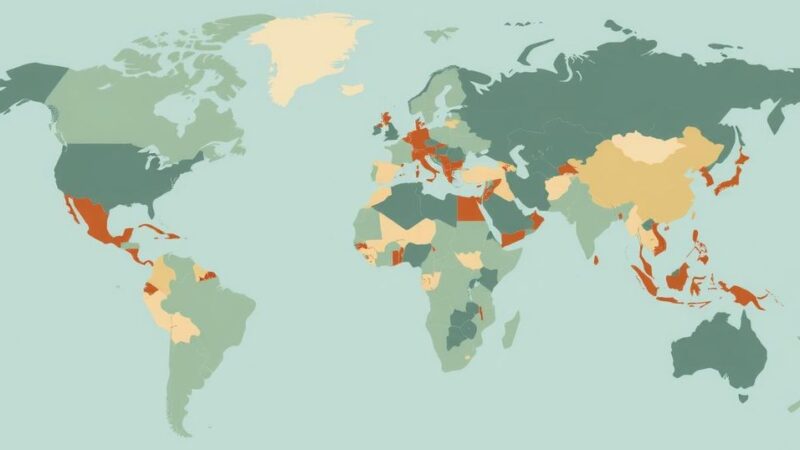Somali Prime Minister Hamza Abdi Barre accused Ethiopia of undermining Somalia’s territorial integrity by planning to lease coastline in Somaliland. This has led to heightened tensions, with Somalia threatening to remove Ethiopian troops and seeking military assistance from Egypt amid concerns over Al-Shabaab militants.
In a striking development at the United Nations, Somali Prime Minister Hamza Abdi Barre condemned Ethiopia for actions that he described as a “flagrant violation” of Somalia’s territorial integrity. This accusation arises from Ethiopia’s recent announcement to lease a segment of coastline within the self-declared independent region of Somaliland. This decision has heightened tensions, particularly after Ethiopia had previously expressed intentions to establish a naval base and commercial port in the area. Ethiopia’s motivation for this move stems from its longstanding need for direct access to maritime routes, an objective increasingly difficult due to its landlocked status. However, Somalia does not acknowledge Somaliland’s claim to independence, which originated in 1991, and its government maintains that such actions by Ethiopia threaten Somalia’s sovereignty. During his address at the UN General Assembly, Prime Minister Barre stated, “Ethiopia’s attempt to annex part of Somalia under the guise of securing sea access is both unlawful and unnecessary.” In contrast, Ethiopia’s Foreign Minister Taye Atske Selassie refuted these claims, arguing that similar agreements have been conducted by other nations and imploring the Somali government to avoid inciting unnecessary hostilities, which he suggested might be a distraction from its internal political struggles. In response to Ethiopia’s actions, Somalia is contemplating the expulsion of Ethiopian troops stationed in the country as part of an African Union mission aimed at combating the Al-Shabaab militant group since 2007. Additionally, Somalia has engaged in a military partnership with Egypt, acquiring weapons that have raised concerns in Ethiopia regarding the potential for these arms to be obtained by extremist groups. The African Union mission is poised for a strategic transition at the year’s end, with Egypt proposing to replace the Ethiopian forces. Moreover, there are discussions regarding the removal of an estimated 10,000 Ethiopian soldiers from the border to better address the threat posed by Al-Shabaab incursions.
The relationship between Somalia and Ethiopia has been historically fraught, shaped by territorial disputes and differing political ambitions. The announcement by Ethiopia regarding the leasing of coastal property in Somaliland, a self-declared independent region, exacerbates the already precarious situation. Following the declaration of independence in 1991, Somaliland has sought international recognition which has largely been elusive. The geopolitical dynamics are further complicated by the involvement of foreign powers, such as Egypt, looking to enhance their standing in the Horn of Africa amid concerns of instability.
In summary, the escalating tensions between Somalia and Ethiopia highlight significant geopolitical challenges in the Horn of Africa. Somalia’s assertions of violated territorial integrity and Ethiopia’s counterclaims present a complex backdrop to regional stability. As both nations navigate their respective foreign alliances and military strategies, the future relationship will be pivotal for peace in the region.
Original Source: www.bssnews.net






